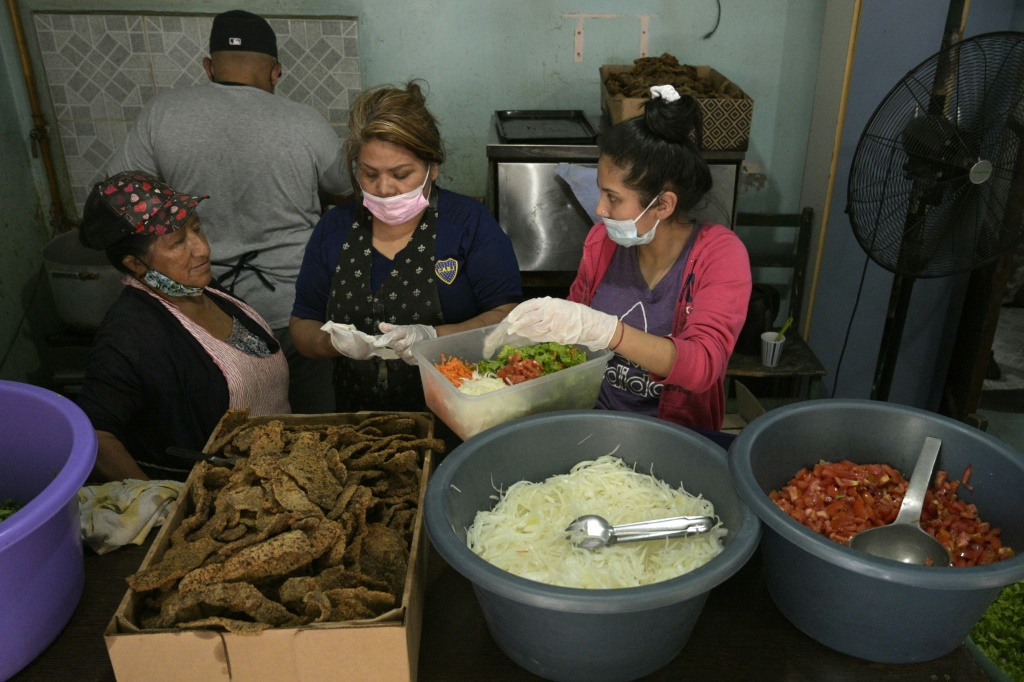RIO DE JANEIRO, BRAZIL – Argentina will hold this Sunday (14) legislative elections that are key for the ruling coalition’s political future and of the Peronist president Alberto Fernández, who, after almost two years in office, is showing strong wear and tear amid a deep economic crisis.
The Fernández government seeks to retain its legislative majority in this Sunday’s elections, a goal that seems improbable, according to the latest polls published before the closing date for the publication of polls.

Some 34.3 million Argentines are eligible to go to the polls to vote on 127 of the 257 seats in the Chamber of Deputies and 24 of the 72 seats in the Senate.
The ruling party lost in last September’s primary elections, in most Argentine provinces. If this trend is confirmed in Sunday’s legislative elections, it will not keep control of Congress.
The ruling party Frente de Todos, which obtained around one-third of the total votes in the primaries, versus slightly more than 40% received by Juntos por el Cambio, the main opposition front, is betting that an increase in voter participation in Sunday’s election will help it have a better result.
VOTE PUNISHMENT
The primaries disclosed an open confrontation between the ruling party wing close to the president and that beholden to Vice President Cristina Fernandez, who governed Argentina between 2007 and 2015.
Fernández comes to these elections with a low level of approval of his administration – 26.6% – lower than the 30.8% approval when the primaries were held in September, according to the latest study by the consulting firm Management & Fit.
Argentina has been dragging along an economic crisis for several years, aggravated by the coronavirus pandemic, which has caused 116,222 deaths.
In addition to a very high inflation rate – 52.1 % year-on-year in October – it has a high poverty rate (40.6 %), employment problems, and complex negotiations with the International Monetary Fund (IMF) to refinance debts of US$45.5 billion.
In this scenario, the dissatisfaction of Argentines with the government of Alberto Fernández has been increasing in recent months.
Mariel Fornoni, director of the consulting firm Management & Fit, interpreted the results of the primaries: “people voted against the government, not that the opposition won,” she told Efe.
In her opinion, the anger that Argentines have today is, among other reasons, due to the government’s economic management, since “there is no economic plan, it is not known who makes the decisions,” and also “there is a lot of conflict within the coalition itself.”
Fernández’s image has also been affected in recent months by the scandal of the dissemination of photos of the birthday party of the first lady, Fabiola Yañez, at the presidential residence in July 2020, when a ban on social gatherings decreed by the president himself was in force.
For the analyst Jorge Daniel Giacobbe, director of the consulting firm Giacobbe & Asociados, these elections are not moved by ideological or political party reasons but “by a cathartic act of liberation of anguish.”
In declarations to Efe, Giacobbe pointed out that this government, which meant hope for 48% of the people who voted for it two years ago, “six months later it had already broken down and it does not solve the problems and does not generate hope for the future.”
FUTURE OF THE RULING COALITION
The unknown now is what will happen in the ruling coalition if it suffers an adverse result; what difficulties will Alberto Fernández have to face while completing his term of office, which ends in 2023.
The crisis unleashed within the ruling coalition by the defeat in the primary elections was attempted to be overcome with a ministerial reshuffle imposed by Vice-President Cristina Fernandez.
Suppose in this Sunday’s elections the setback becomes decisive. In that case, it will be necessary to see if there is “a stronger landing of Cristina in the government or if they try to look for help from the governors,” according to Fornoni.
Giacobbe considered that these elections define more the future of the individual politicians, rather than that of society, which next month will continue “suffering the same inflation, the same insecurity, the same poverty, and the same unemployment.”

